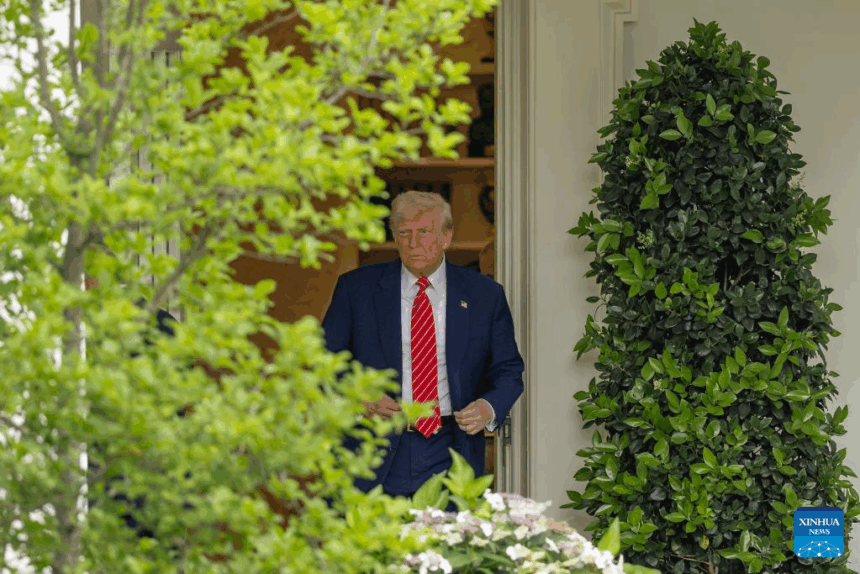U.S. Supreme Court on Friday lifted a federal district court order that kept humanitarian parole protections in place for more than 500,000 migrants from four countries of Cuba, Haiti, Nicaragua and Venezuela.
The court has also allowed the Trump administration to revoke temporary legal status for about 350,000 Venezuelan migrants in another case.
The move has cleared the way for the Trump administration to strip temporary legal protections for hundreds of thousands of immigrants for now, and pushed the total number of people who could be exposed to deportation to nearly one million, local media reported Friday.
To address the growing number of migrants arriving at the U.S.-Mexico border, the Biden administration created a parole program for Cubans, Haitians, Nicaraguans and Venezuelans in late 2022 and early 2023, authorizing them to work in the United States for two years after going through certain process. The program protected roughly 532,000 people from the risk of deportation.
But soon after beginning his second term, President Donald Trump issued an executive order directing the Homeland Security Secretary Kristi Noem to terminate all parole programs. Acting on the executive order, Noem in March announced ending the parole program, with any grants of parole still in effect expiring by April 24.
A federal district court judge in Massachusetts agreed to halt Noem’s blanket revocation of migrants’ temporary legal status when a group of 23 individuals including several parolees and a nonprofit organization challenged Noem’s termination of the program.
The Trump administration first appealed to the U.S. Court of Appeals for the 1st Circuit, which declined to pause the district court’s order pending appeal; and then sought the Supreme Court’s intervention. ■
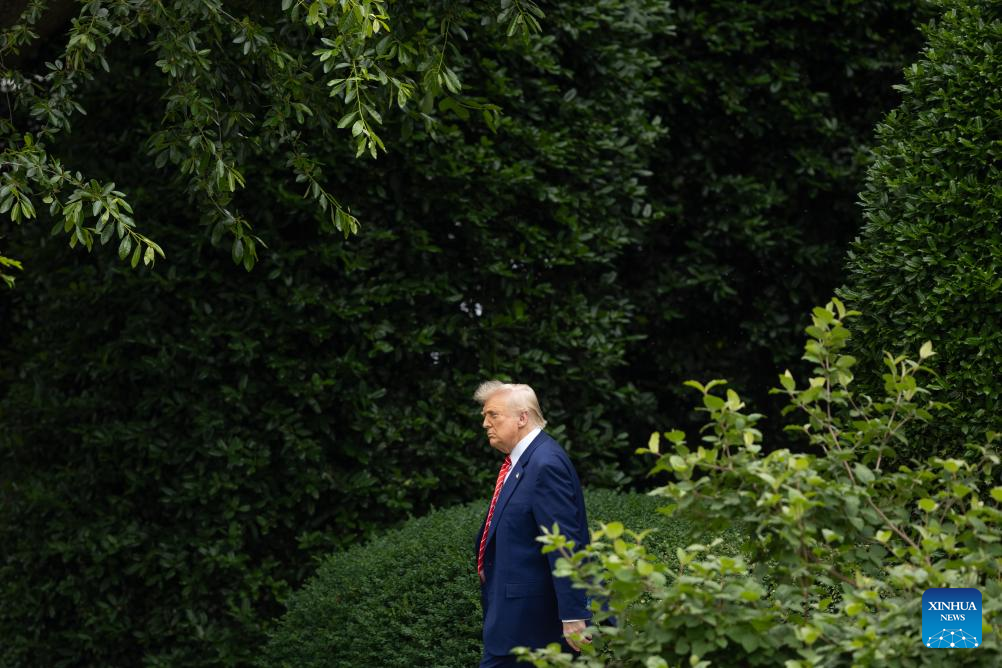
U.S. President Donald Trump walks to board Marine One at the White House in Washington, D.C., the United States, on May 30, 2025. U.S. Supreme Court on Friday lifted a federal district court order that kept humanitarian parole protections in place for more than 500,000 migrants from four countries of Cuba, Haiti, Nicaragua and Venezuela. The court has also allowed the Trump administration to revoke temporary legal status for about 350,000 Venezuelan migrants in another case. (Xinhua/Hu Yousong)
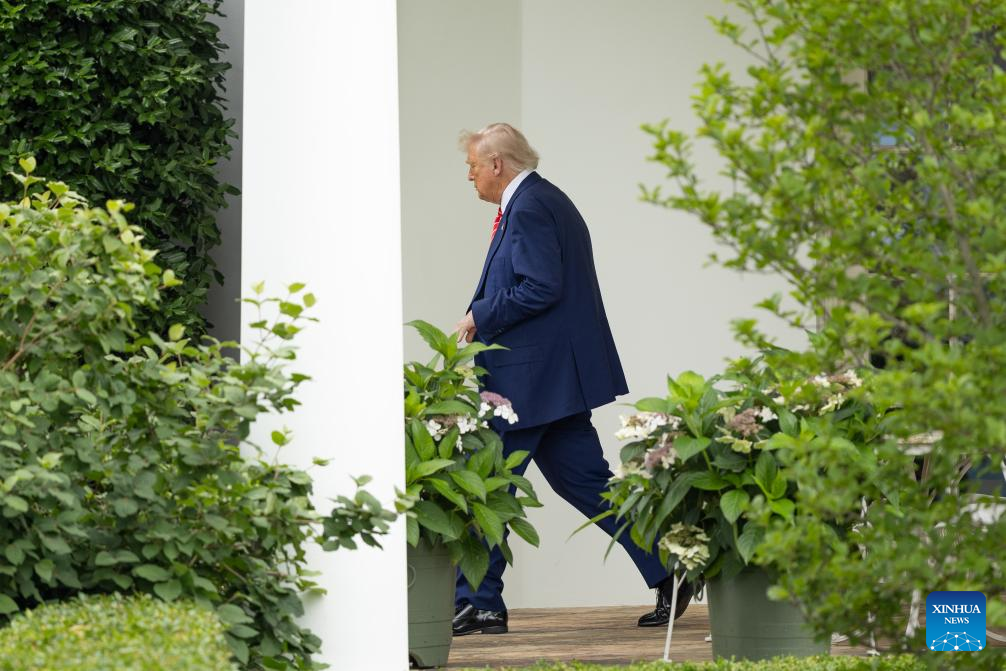
U.S. President Donald Trump walks to board Marine One at the White House in Washington, D.C., the United States, on May 30, 2025. U.S. Supreme Court on Friday lifted a federal district court order that kept humanitarian parole protections in place for more than 500,000 migrants from four countries of Cuba, Haiti, Nicaragua and Venezuela. The court has also allowed the Trump administration to revoke temporary legal status for about 350,000 Venezuelan migrants in another case. (Xinhua/Hu Yousong)
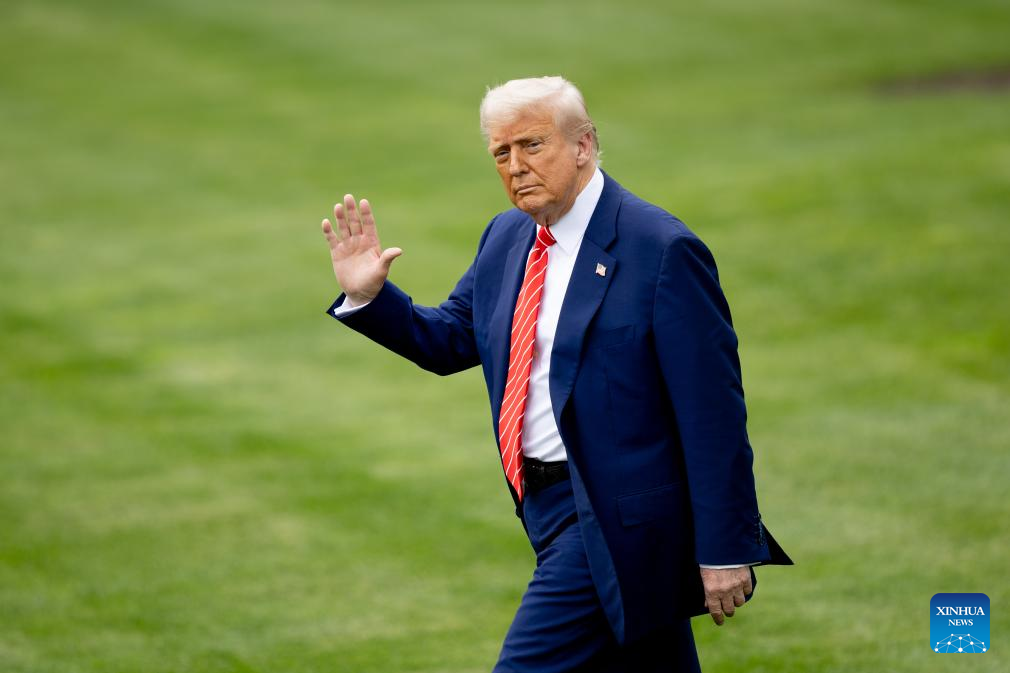
U.S. President Donald Trump walks to board Marine One at the White House in Washington, D.C., the United States, on May 30, 2025. U.S. Supreme Court on Friday lifted a federal district court order that kept humanitarian parole protections in place for more than 500,000 migrants from four countries of Cuba, Haiti, Nicaragua and Venezuela. The court has also allowed the Trump administration to revoke temporary legal status for about 350,000 Venezuelan migrants in another case. (Xinhua/Hu Yousong)
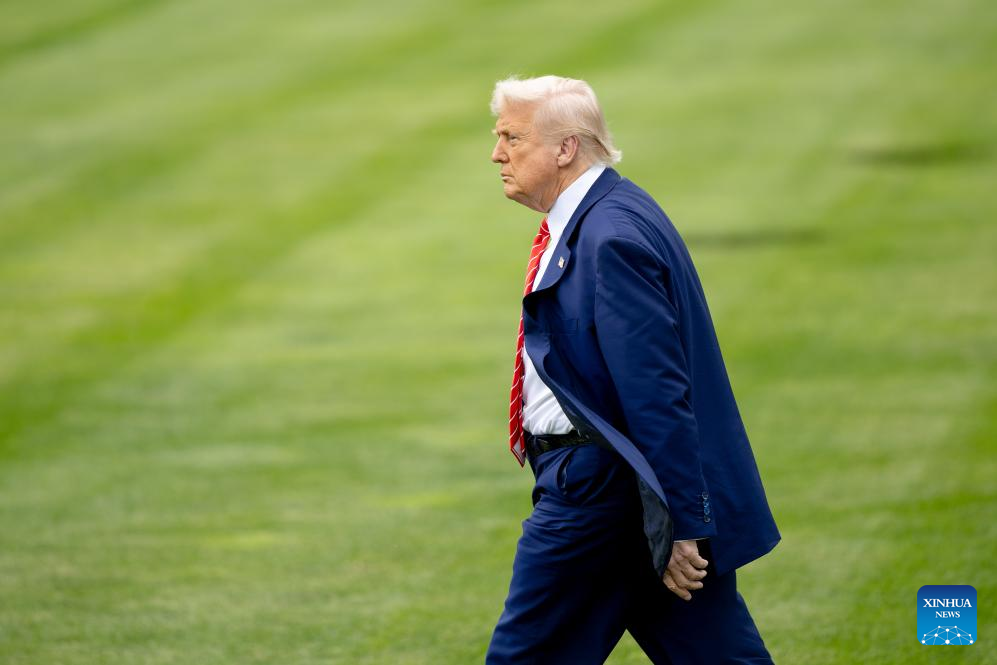
U.S. President Donald Trump walks to board Marine One at the White House in Washington, D.C., the United States, on May 30, 2025. U.S. Supreme Court on Friday lifted a federal district court order that kept humanitarian parole protections in place for more than 500,000 migrants from four countries of Cuba, Haiti, Nicaragua and Venezuela. The court has also allowed the Trump administration to revoke temporary legal status for about 350,000 Venezuelan migrants in another case. (Xinhua/Hu Yousong)




